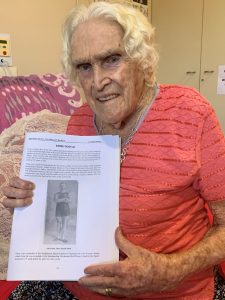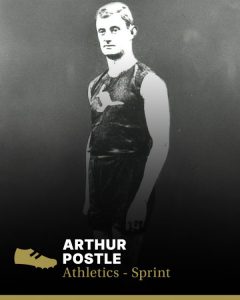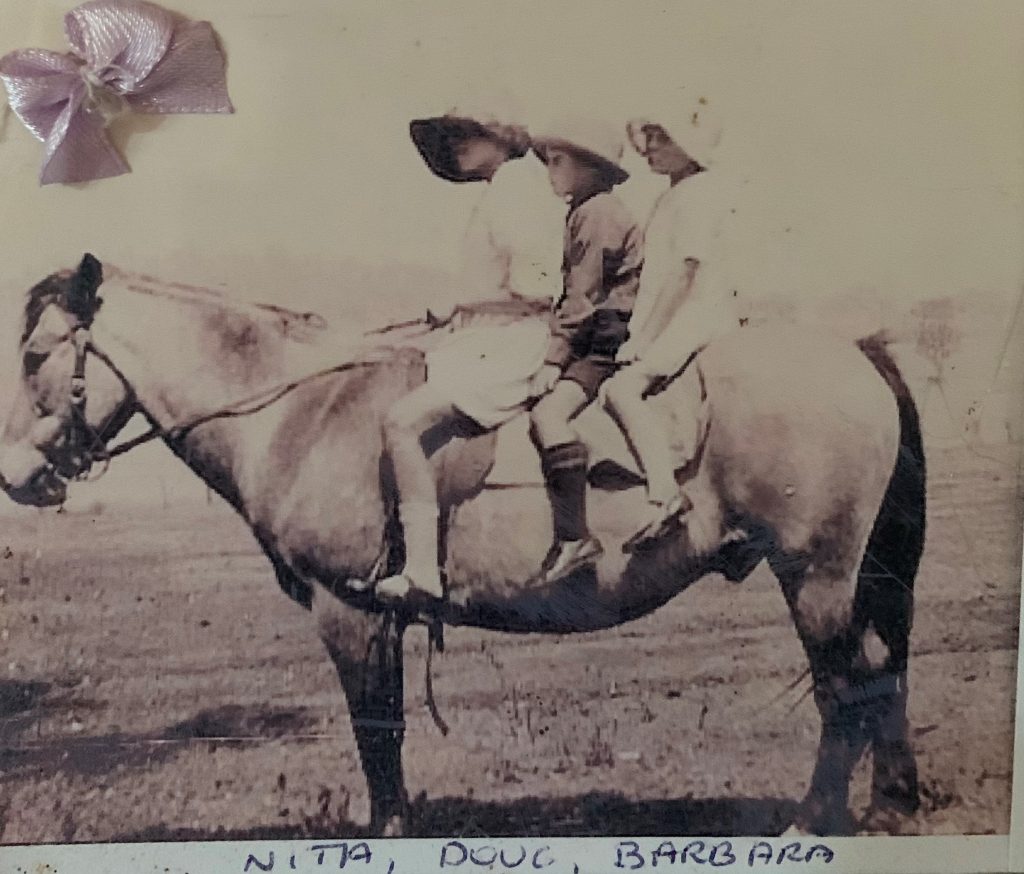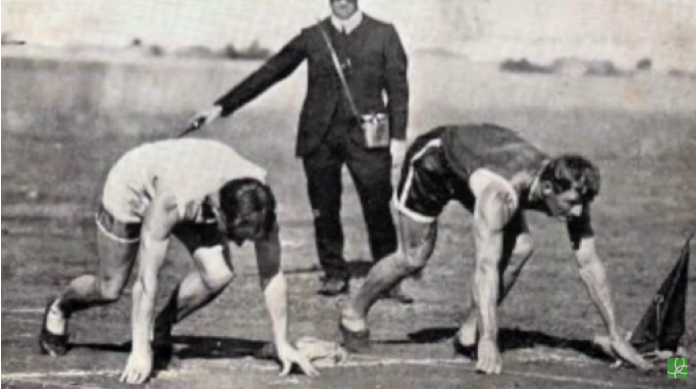A Sunshine Coast centenarian will recall the deeds of a fleet-footed relative this Easter as sprinters gather for the iconic Stawell Gift.
The footrace includes a special event named after Arthur Postle — a Queensland sprinter once dubbed the world’s fastest man.
Postle died 57 years ago this month and was posthumously elected to the Australian Sports Hall of Fame.
Nita Freier, who turns 105 this month, is Postle’s cousin.
From her home at Ozcare Caroline Chisholm Aged Care Facility at Currimundi, Nita has images of Postle, along with those of her father Ernie, another talented sprinter, and her grandfather Fred Postle, who was an early mentor of the star Queensland-bred athlete from a century ago.
Arthur Postle honed his speed on a track carved out of Fred Postle’s farm near Pittsworth in Queensland’s central west.
“Arthur walked from Springside to Toowoomba when he was 12 to compete,” Nita said.
“He got to Pittsworth station and the train was just leaving, so he walked all the way to Toowoomba, and he ran in the big race, and he ran second. They said it was a shame because he would have won otherwise.”
Two years later, after chipping out a track on his Uncle Fred’s farm and helping to roll it flat with an old oil drum filled with sand, Postle returned to Toowoomba.
He defeated the men, won every event he entered, launching himself as a professional runner of great esteem.
Like stories about inspirational people? So do we. Help us publish more free articles by subscribing to our daily news feed. All it requires is your name and email. See SUBSCRIBE at the top of this article.
In memoirs that Nita keeps tucked away in her dresser at Ozcare, Postle retells his conversations with his Uncle Fred, a younger brother to Postle’s father Arthur.

It was Fred who had urged him to leave behind farm life and take to the track.
He remembers being told to get ‘a pair of running shoes and do some proper running’ by his uncle, who came home from a trip to Sydney with an enthusiasm to get Postle on his way.
“Turning to me one day, he said, ‘You are a great bit of stuff, and I don’t think you should spend your life in a 200-acre paddock’,” Postle wrote after his retirement.
“Each morning, at daylight, I was to be seen jogging, sprinting and striding along this secluded bush track.
“On Sundays and public holidays, the place was like a gala ground.
“Some young cousins, my younger brothers and other athletes used to contend there, and we would go through the routine of contests, sprinting, hurdling, jumping, weight throwing.”
Postle left the farm in 1899 to pursue professional running events across the country.
With prizemoney up for grabs, runners travelled throughout Queensland to compete in Brisbane, Bundaberg, Gympie, Rockhampton and Charters Towers.
Postle was crowned the world’s fastest man in 1906 and won the 220 Yard World Champion Cup in 1909.
Every year over the Easter long weekend, he is honoured at the Stawell Gift with the Arthur Postle Handicap — a 75m sprint.
Along with a love of athletics, Nita shares a natural modesty for which Postle was renowned.
The centenarian cherishes his book.
“My father was training with him, and my grandfather trained him as a young boy.”
Postle was inducted into the Australian Sport Hall of Fame in 1985.
Gifted with power and speed, Postle had an almost rocket-like start.
Standing at 178cm tall, and weighing 73kg, he had a peculiar starting position that involved spreading his left hand and driving the knuckles of his right hand into the ground.
His first step was a big right step outside the arm, leaving many competitors in his wake.
He collected prizemoney as he travelled to South Africa, England, Wales and Scotland in pursuit of titles and world records.
His greatest adversary was Jack ‘The Blue Streak’ Donaldson, who he beat over 75 yards (70m), 150 yards (140m) and set a new world record in the 200 yards (182m).
Guided by athlete Jack Todd, Postle became a mentor to others on retirement, coaching Norma Croker Fleming who was the first Queenslander to win Olympic gold.
She was a member of the famous 4x100m gold medal relay team which featured Shirley Strickland, Fleur Mellor and Betty Cuthbert at the 1956 Melbourne Olympic Games.

Nita is a mother of three, grandmother of 11, great grandmother of 19 and recently became a great great grandmother.
She enjoys her life at Ozcare, where she has lived beyond the years of her grandfather who was 99 years and nine months at his death.
Nita’s mother died prematurely but her father Ernie, after training with the best, devoted his life to keeping sport alive in the tiny community around Pittsworth and Springbrook.
“My mother died when I was 15 and I had to take over and look after my sister Barbara and brother Douglas, who were 11 and eight at the time,” Nita said.
“We had a pretty hard life. My father never married again.”





